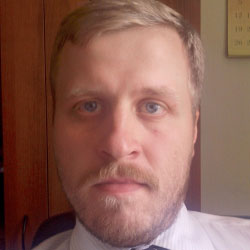The Expert magazine (No. 41. October 9-15, 2023, pp. 24-25) published an interview with Alexey Belogoryev, Research and Development Director of the Institute for Energy and Finance, about the prospects of gas supply to Moldova and problems in Russian-Moldovan gas relations.
— Since the first of October, the Turkish state-owned company Botas has started gas supplies to Moldova. What is the supply route and the source of gas?
— We are talking about supplies in transit through Bulgaria and Romania via the Trans-Balkan gas pipeline in reverse mode (until 2020, gas went through it in the opposite direction, from Russia to Turkey). Whose gas by origin Turkey plans to sell is an open and complex question. It has large volumes of pipeline imports from Russia, Iran, Azerbaijan, as well as LNG supplies from Egypt, Algeria and the United States. Plus, its own production in the Black Sea is developing. In fact, of course, we are talking about re-export, but gas resales have become quite commonplace in the European market in recent years. In this case, it will be very problematic to determine which gas is being re-exported. But such supplies may spur Turkey to import more from Russia itself (while imports, on the contrary, are falling sharply in 2023).
— Is it possible to regard the supply of pipeline gas from Turkey to Moldova as testing the model of the Turkish gas hub? How is this project developing in principle?
— This is testing the new role of Botas as a re-exporter of gas, which the company has been striving for strategically for a long time. This has an indirect relation to the hub. A gas hub is essentially just a point of sale where gas is sold and bought. At the same time, in order to talk specifically about the hub, there must be large volumes of gas sold, including on a spot or short-term basis, and a lot of sellers and consumers. Turkey is still far from all this. The hub as an infrastructure point for receiving and transmitting (transit) gas has been formed in Turkey for a long time and quite successfully. And Gazprom made a big contribution to its creation by building the Turkish Stream. But the transition from an infrastructure point to a trade point is a long way. And from trading to price—forming - even longer. This is a process for ten to fifteen years or more.
— What are the positions of Gazprom and Moldova regarding its unresolved debt for the supplied gas? What options for the settlement of this debt can become acceptable for the Russian side?
— This is a question for Gazprom and the government of the Russian Federation. Given the current position of the Moldovan side, a settlement agreement providing for the repayment of at least the main body of the debt looks unlikely, and the future prospect is many years of litigation.

Subscribe for updates
and be the first to know about new publications